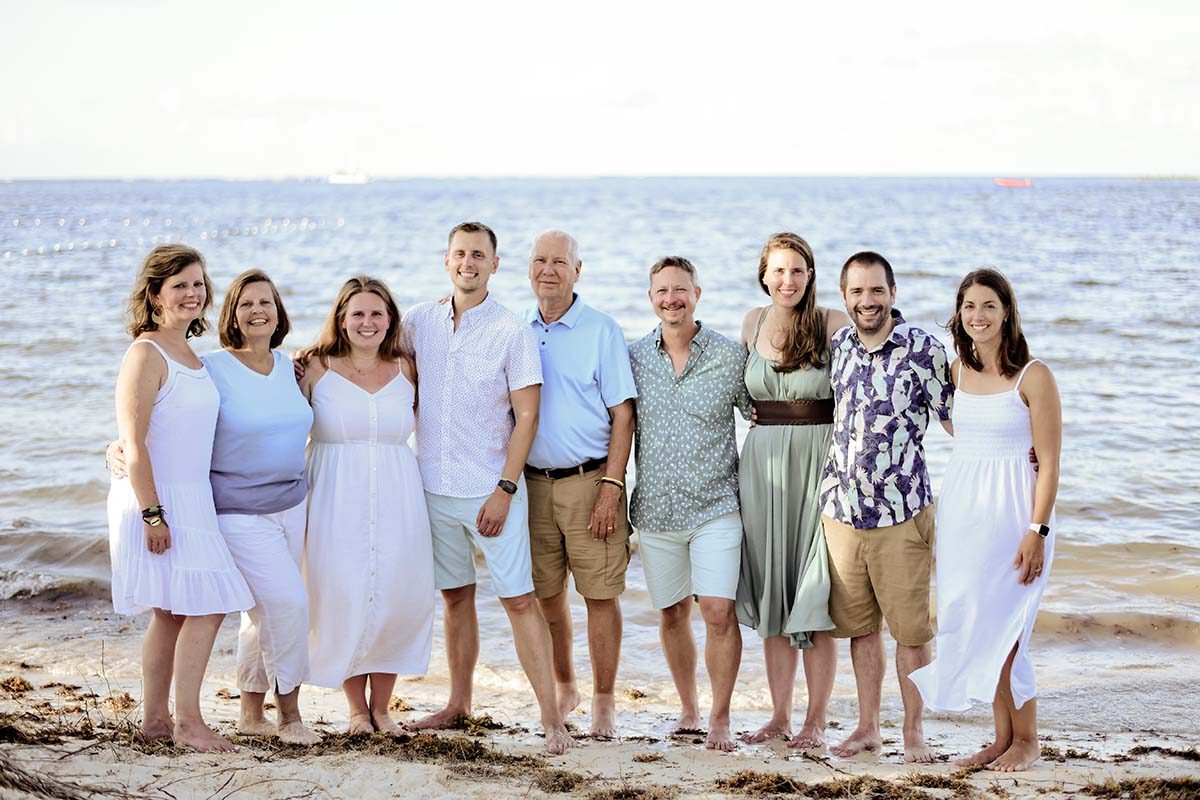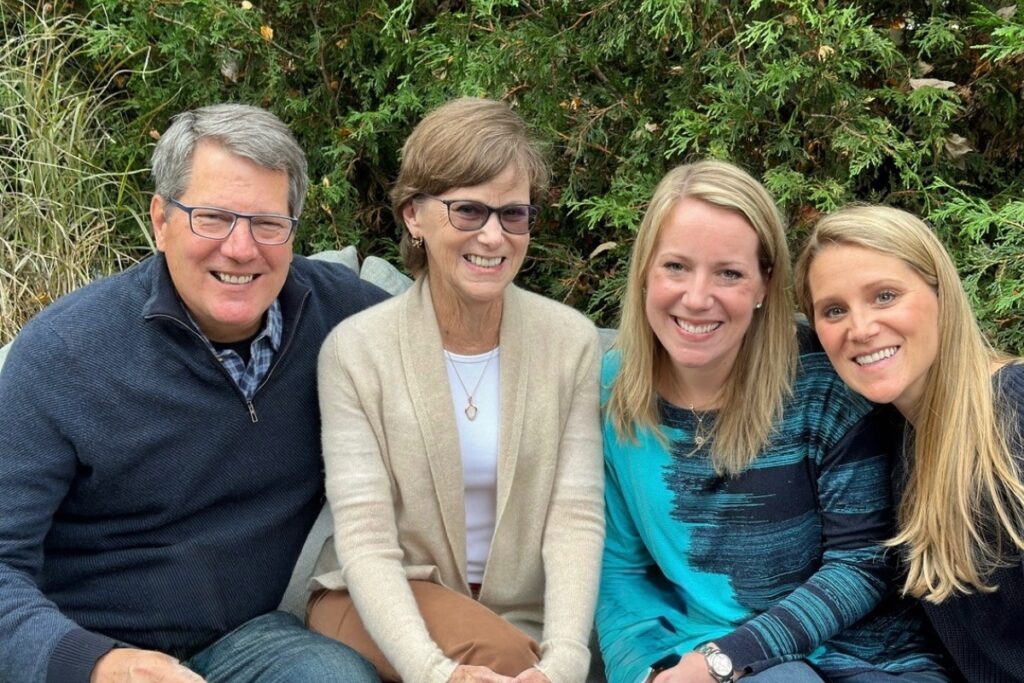When their father, Andrew “Andy” Kunz, of La Grange, Illinois, was diagnosed with recurrent and locally advanced bladder cancer in 2015, his adult children were struck by a sense of disbelief.
“It felt like when you nearly get in a car crash,” said Phil Kunz, Andy’s son. “Everything slows down, and you realize how lucky you are and stop taking what you have for granted.”
After a doctor at Andy’s local hospital said treatment options were extremely limited, he sought a second opinion.
His daughter Megan Applewhite, AB’03, MD, a fellow at the University of Chicago Medicine at the time, asked her mentor if there was anyone who might be able to help her dad. This led them to Peter H. O’Donnell, MD, associate professor of medicine, who recommended Andy participate in a clinical trial he was leading.
Today, after having participated in two trials under the direction of O’Donnell, Andy is on maintenance therapy once a month.
“Thanks to Dr. O’Donnell, we’ve gotten six extra years of ‘Dad time,’” Phil said.
Andy’s daughter Rachel Kunz noted how special this time has been.
“Last Christmas, I sat with Dad and learned so much about our family,” she said. “He shared stories about my grandmother and great grandmother, which gave me insight into not only who he is but also where we came from, and I think that’s really important.”
The family is grateful for the care their father has received at UChicago Medicine.
“Our dad is one of the most generous people you’ll ever meet,” said daughter Beth Kamano. “He remembers things about people and is genuinely interested. It has been so gratifying for him to now be on the receiving end of high quality attention and care.”
The siblings are also particularly thankful for O’Donnell’s honest, dedicated approach.
“Dr. O’Donnell cares about my dad,” said Applewhite. “He cares that tests are followed up on and that referring physicians are communicating well. He’ll even call my dad late in the evening if necessary. And my dad knows he can trust him.”
To show their gratitude and to help other families facing similar circumstances, the four siblings and their spouses—Phil (Betsy), Megan (Doug), Rachel, and Beth (Dave)—came together to make a $35,000 gift to support a bladder cancer clinical trial led by O’Donnell.
The trial will examine the effectiveness of the drug afatinib—which is currently approved for the treatment of lung cancer—for advanced bladder cancer patients. Based at UChicago Medicine, the phase II trial is the only one of its kind in the country in urothelial bladder cancer.
“The Kunz family’s gift came at just the right time to allow us to push this effort forward,” O’Donnell said. “But beyond advancing the research, their gift was especially meaningful to me because I’ve known their father for many years, and we’ve been through so many ups and downs together.”
“I’ll never forget the day the family asked me about making a gift,” O’Donnell added. “We were discussing their dad’s illness, and they wanted to know what more they could do. It was amazing to me that they were thinking beyond themselves during such a challenging time.”
The family knew they wanted to support O’Donnell’s work, while also honoring their dad and helping others.
“Someone else’s dad or mom could potentially participate in this clinical trial and receive the same type of fantastic care that our dad has benefited from over the past several years,” said Kamano. “And if that was at all possible, it was something we were very interested in.”
The siblings feel that their dad’s positive attitude—along with the tremendous and consistent support he has had from their mother, Susan Kunz—have made a big difference in his cancer journey.
“After a long day at the medical center and then driving home in rush-hour traffic, you’d expect Dad to be in a bad mood, but he isn’t,” Rachel said. “He told me that while he’s getting his treatment, he sits next to people who have suitcases because they flew in for their appointments. He recognizes how lucky he is to live so close to a world-class institution and to have access to this level of care.”
The siblings felt it was important to make the donation together and now, versus years down the road, so their dad and mom could see the impact.
“We’re kind of a package deal,” said Applewhite. “That speaks to the way we were raised by our parents and the importance of cohesion in our family. When it comes to what matters, we are in it together.”
If you’d like to learn more about how you can help accelerate bladder cancer research at the University of Chicago Medicine, please contact Ellen Clarke at eclarke@mbsd.uchicago.edu.




